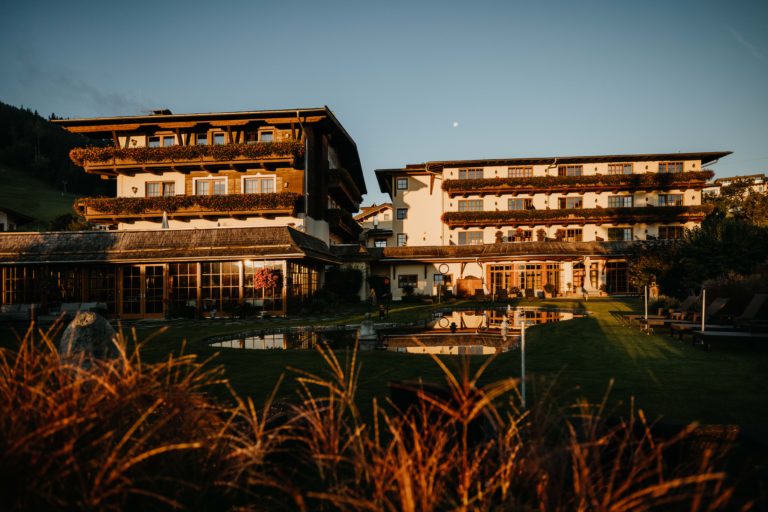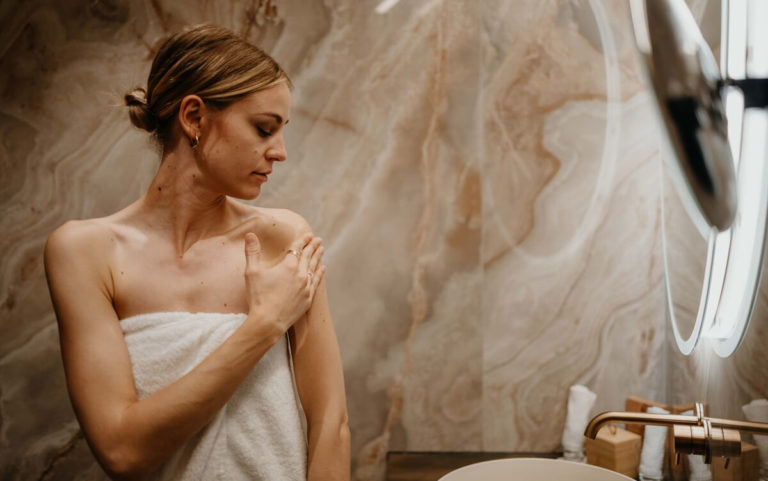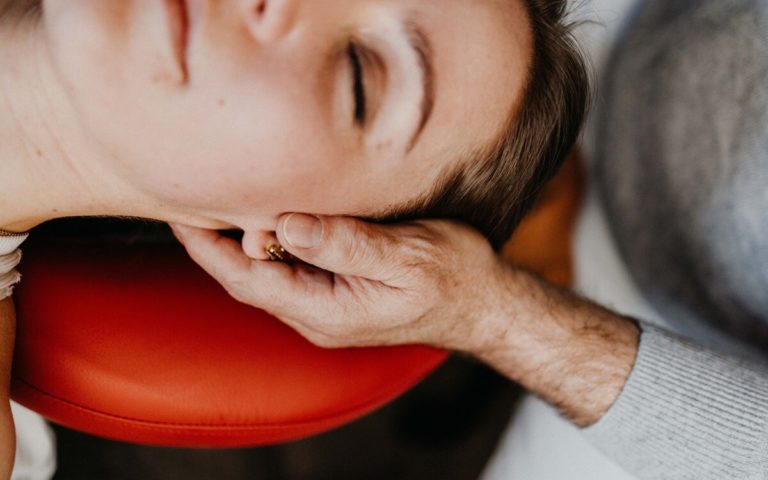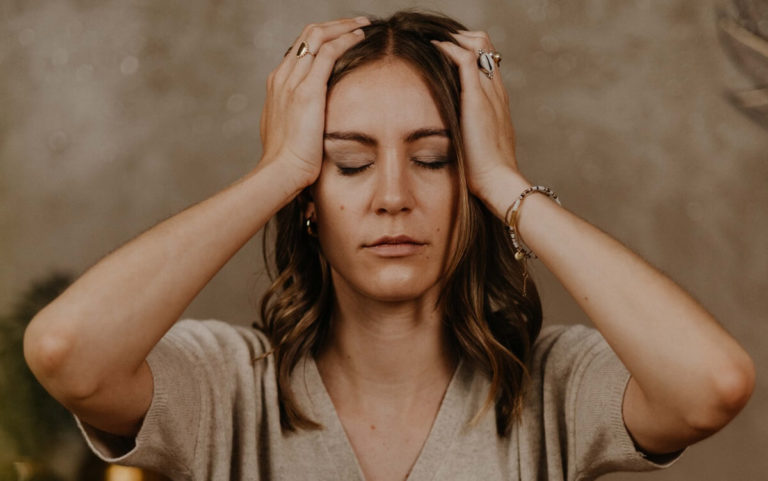The skin is the largest human organ. It protects us from the sun, cold and pathogens and requires appropriate care. With a healthy lifestyle and the right care, you can improve the appearance of your skin in the long term.
The most important things in a nutshell: Get better skin
Various factors play a role in improving your skin and strengthening your complexion in the long term. The right care for your skin type is just as important as daily UV protection. True beauty also comes from within - a healthy diet should not be neglected.
Blemished skin: causes and triggers
Before you start skincare, you first need to find out what is causing dryness, acne or redness.
Your skin consists of countless small sebaceous glands that are responsible for producing skin oil. This oil forms an important protective barrier against bacteria, dust, temperatures and other external influences. Impaired sebum production weakens the protective shield and affects the appearance of your skin.
- Too little sebum production leads to dry, cracked and wrinkled skin and promotes redness and itching.
- If the glands work too actively, the pores become clogged with excess oil, resulting in blackheads and pimples.
In addition to physical causes, there are other triggers for blemished skin that are promoted by external or genetic factors. These include an unhealthy diet, excessive stress, weather and temperatures as well as (pre-)skin diseases, e.g. neurodermatitis.
Know your skin type: How to treat your skin correctly
You now know the possible triggers for your skin problems. You can find out more about the different skin types and corresponding treatments below.
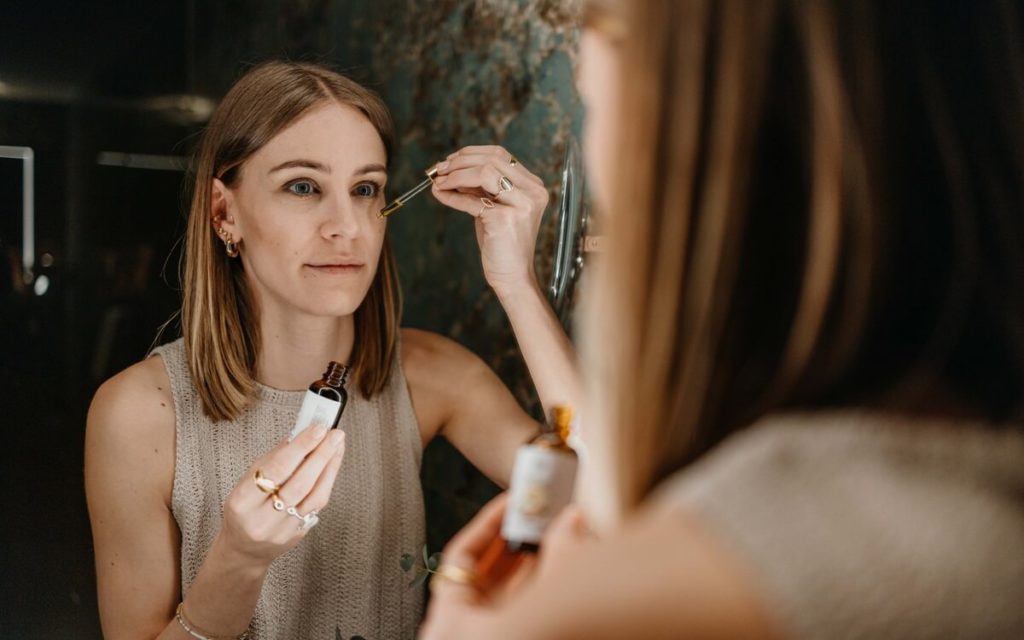

Normal skin
Normal skin is neither too dry nor too oily and has an even appearance. You have no blemishes and your facial skin is soft and clean. Caring for normal skin is uncomplicated and does not require any special products or products.
Sensitive skin
In comparison, sensitive skin reacts easily to stimuli. This manifests itself in a feeling of heat, tension, redness and itching. The natural protective layer is disrupted, which is why bacteria and pathogens can penetrate your skin barrier more easily.
Sensitive skin requires more care than normal skin in order to treat dryness and roughness in the long term.
- Use mild, pH-neutral, alcohol-free and fragrance-free cleansing and care products to protect your skin barrier.
- The aim is to soothe your skin and provide it with sufficient moisture.
Dry skin
In most cases, dry skin is not a permanent condition, but is caused by external stimuli such as the weather, low humidity or hot water. Only in rare cases can dry skin last longer.
The cracks in your skin pose a greater risk to bacteria and can lead to further skin diseases. In particularly severe cases of dryness, the cracks go deep into the skin and may bleed.
A skin disease characterized by dryness is known as "atopic skin". Dandruff and irritation cause unpleasant symptoms such as severe itching. The main causes are genetic predisposition, allergens and certain foods or substances. This is how you care for dry skin:
- Rebalance your skin barrier with mild, pH-neutral, alcohol-free and fragrance-free cleansing and care products.
- Anti-inflammatory and moisturizing active ingredients also support regeneration.
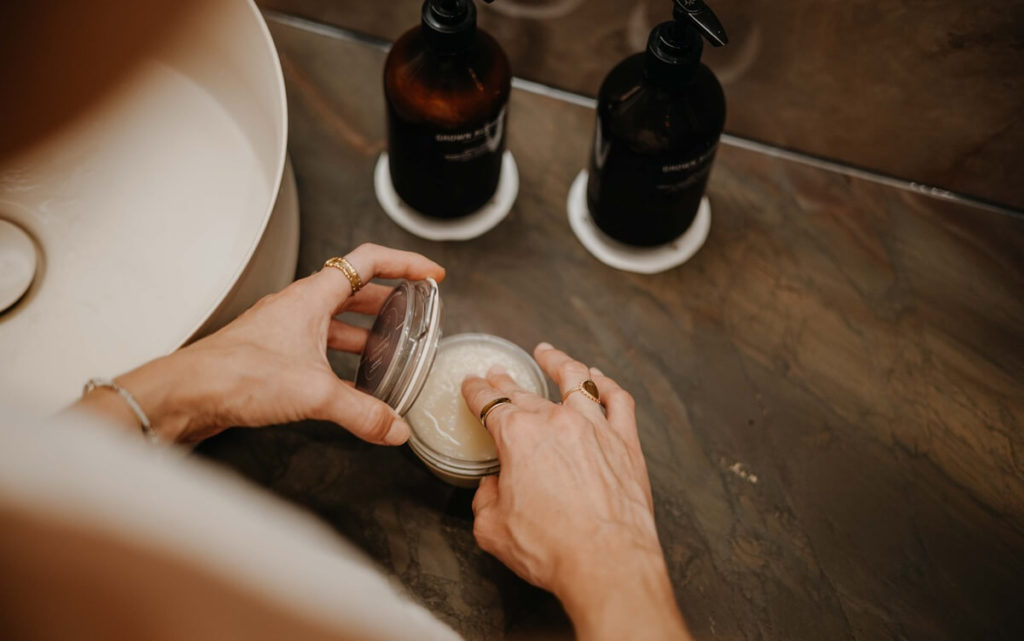

Oily skin
Excessive sebum production manifests itself as coarse-pored and very shiny, oily skin. Genetic or hormonal causes are also the trigger here. Young people and people under the age of 30 in particular suffer from oily skin. Often in connection with acne.
- Remove sebum and make-up with cleansing milk or washing gel.
- Exfoliate once or twice a week to remove dead skin cells that may be clogging your pores.
- Regularly apply a light, non-comedogenic moisturizer - which does not clog pores - for your skin type.
Combination skin
If your skin shows symptoms of dry and oily skin, this is known as combination skin. The sebaceous and sweat glands are unevenly distributed. The T-zone around the forehead, nose and chin is usually oily, while the cheeks have normal or dry skin.
- Remove sebum and make-up with cleansing milk or cleansing gel.
- Exfoliate once or twice a week to remove dead skin cells that could clog your pores.
- Both dry and oily skin needs moisturizing. Use a light, non-comedogenic moisturizer for combination skin.
Flaky skin
If your skin is frequently exposed to environmental irritants such as sun, wind or dryness, this can lead to the formation of dandruff. Larger flakes detach from the outer cell layer of your skin, which can look like dust.
In addition to external influences, illnesses can also be the cause of dandruff. Allergic reactions, infections with fungi or staphylococci as well as a disturbed immune system or cancer are possible triggers. In these cases, itching usually also occurs.
- Use mild, pH-neutral products without alcohol for cleaning and care.
- Wound and healing ointments are suitable for particularly scaly and cracked skin.
Improve facial skin: Strengthen from within with Ayurveda
The holistic approaches of Ayurveda can help to improve your skin. The aim is to strengthen the skin from the inside out in order to achieve long-term improvement.


As the largest organ of the human body, it is only logical that the skin is also a mirror of your inner health. According to Ayurvedic teachings, it interacts closely with the three doshas and the digestive fire Agni.
If there is an imbalance in your constitution or Agni, this has an effect on your body. Dry skin, inflammation or impurities are the result. To sustainably improve your skin with Ayurveda, we take a look at your inner self.
How are digestion and skin health connected?
The digestive fire Agni plays an important role in Ayurveda. Only a strong Agni can eliminate undigested metabolic residues from your body. According to Ayurveda, if your digestive fire is too weak, this leads to dry skin or impurities.
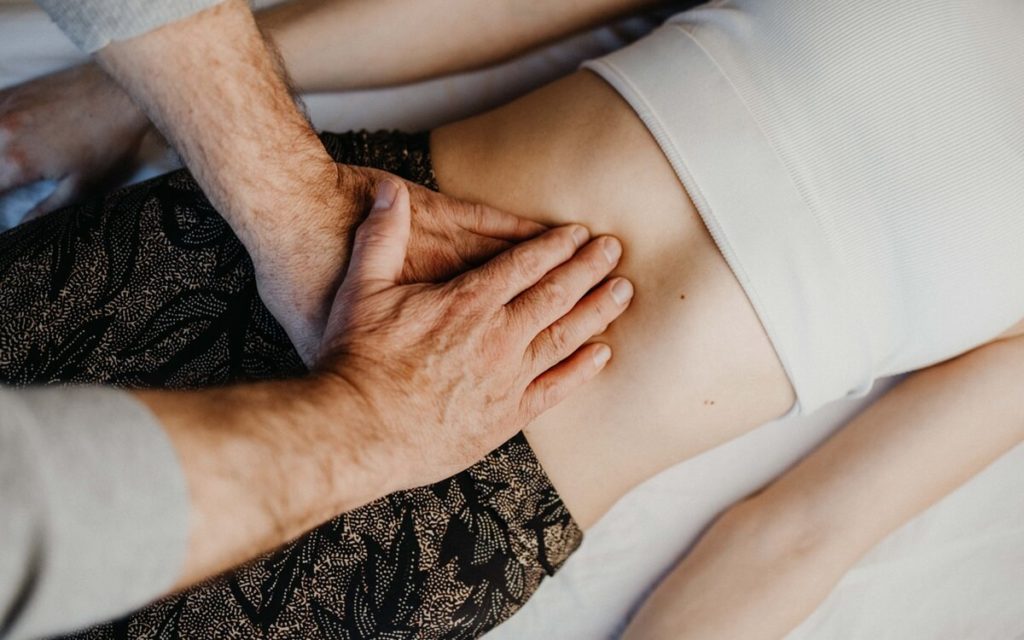

To regain firm skin with Ayurveda, it is important that you strengthen your Agni. Regular meals give your body enough time to digest. Warm dishes are also easier to digest than cold or processed foods. Ayurvedic spices and herbs also stimulate the metabolism.
Don't forget to drink plenty of warm water or unsweetened tea so that your body can eliminate toxins. Excessive stress can also lead to impaired agni and therefore blemished skin. Take care of yourself and your body!
5 tips for better skin: sustainably strengthen the complexion
With the following 5 tips, you can easily and sustainably combat the causes and triggers of blemished skin. Improving your skin starts with improving your lifestyle. This is the only way your body can regain its balance and repair the natural skin barrier.
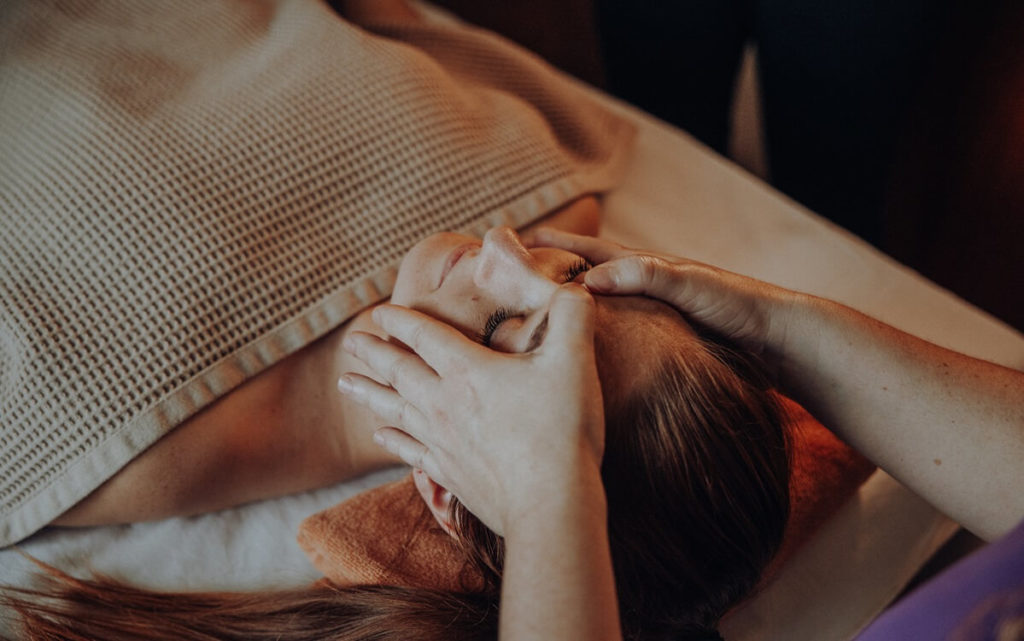

Tip #1: Cleansing, exfoliation & facial massage
One important point is to cleanse your skin properly. You should remove make-up, sweat and skin oils every day to keep your pores clear. In addition to lukewarm water, a gentle cleansing milk that contains oil-dissolving substances is suitable for this.
Regular exfoliation helps your skin to remove flakes and sebum deposits. This keeps your skin looking rosy, smooth and even. Make sure you use gentle products without added alcohol.
A facial massage is also an effective way of keeping your skin firm and healthy. It relaxes you and ensures good blood circulation in your skin. The massage can consist of stroking movements with the fingers or light tapping on certain areas of the face.
Tip #2: Healthy diet and plenty of water
Your Ayurvedic diet is particularly important for your inner health. If your body is strengthened and full of energy, it can maintain the skin barrier. Your diet should be based on lots of fruit and vegetables, as this will provide your body with an optimal supply of vitamins and minerals.
Water is known as a "cure-all" and also plays an important role in healthy skin. Your skin consists of 80% water, which is important for blood circulation and metabolism. Plenty of water protects against dehydration and supports the elimination of harmful substances.
Tip #3: Get enough sleep
Make sure you get enough sleep on a regular basis. Too little sleep leads to a pale and lifeless complexion in the long term. Especially during the deep sleep phase, your body releases a lot of growth hormones. These ensure the regeneration of skin cells.


Tip #4: Always use sun protection
It's no secret that the sun's rays damage your skin. The consequences can be premature ageing of the skin, pigmentation spots and, in the worst case, skin cancer. This makes it all the more important that you use creams with UV protection every day - even in winter.
Tip #5: Fresh air for a revitalized complexion
The last tip is very simple: oxygen stimulates your metabolism and ensures beautiful and healthy skin. The fresh air penetrates your skin directly, which promotes cell production and ensures a fresh complexion.
Regular walks in the fresh air are not only good for your mood, but also ensure radiant skin.


Longevity: factors and practical tips for healthy ageing
To age healthily, you should start in good time to keep your body and mind fit with a conscious lifestyle. This article shows you what you can look out for.

